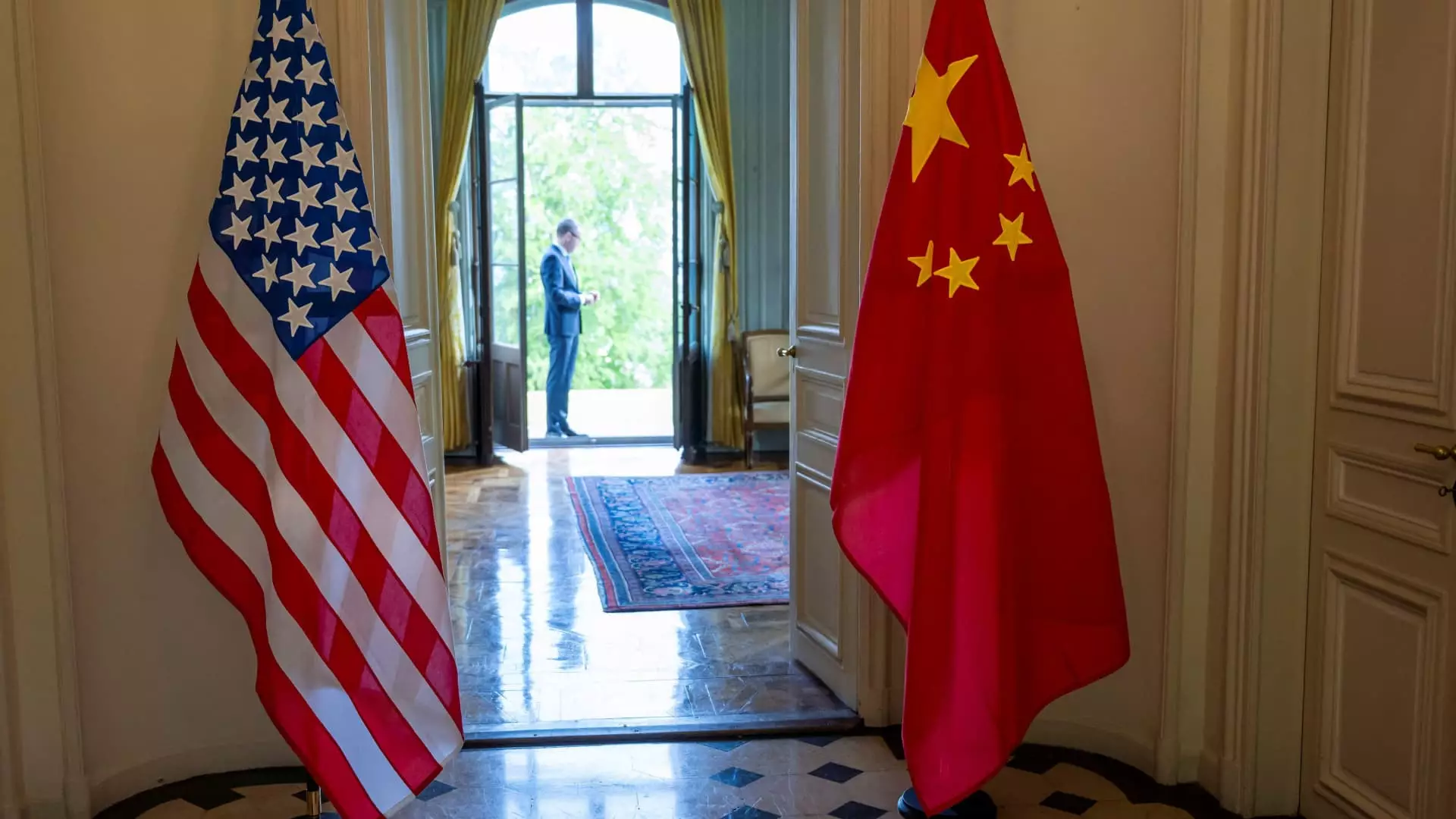As we delve into the intricacies of U.S.-China trade relations, a palpable sense of stagnation hangs in the air. Recent remarks from Treasury Secretary Scott Bessent provide a stark reminder of just how precarious the situation has become. He described the trade negotiations as “a bit stalled,” highlighting the urgent need for direct communication between the leaders of these two superpowers. One might wonder if the recurring cycles of diplomatic talks, punctuated by temporary agreements, merely serve as a band-aid for deeper systemic issues. Indeed, it seems that both nations remain entrenched in their respective positions, waiting for the other to blink first.
The context here cannot be overlooked: just last month, trade tensions spiraled into what many refer to as a “tug-of-war.” The unexpected escalation led to an agreement in Switzerland aimed at rolling back exorbitant tariffs for a limited window. However, the reality remains stark. The U.S. continues to impose technological restrictions, prompting outrage from Beijing, while China’s reluctance to ease its grip on rare earth exports only fuels skepticism in Washington. The façade of progress towards a resolution is easily shattered when the fundamental disagreements on key issues come to light.
The Stubbornness of Superpowers
Despite face-to-face encounters that would ideally help bridge the communication gap, a definitive breakthrough remains elusive. The anticipated dialogue between President Trump and President Xi Jinping may serve as a pivotal moment, but the conditions that surround it are anything but favorable. Analysts and political commentators alike suggest that China is unlikely to approach the table without clear assurances from the U.S. that it won’t spring any nasty surprises during their discussions.
This reluctance on China’s part is informed by a long history of mistrust fostered over the years. Even calls for enhanced communication, as reiterated by Bessent, may ring hollow without substantive gestures from both sides that reflect a genuine commitment to collaboration rather than mere posturing. The urgency of the matter grows, evidenced by the ticking clock that marks the temporary truce—set to last only 90 days. With a mere two months left, this precarious détente invites speculation about the potential for a dire fallout should these talks falter.
The Broader Implications of Trade Wars
Inevitably, the repercussions of U.S.-China trade stalemates extend far beyond the borders of these two nations. The trade war has ramifications that ripple through global markets and economies, affecting countless lives worldwide. The decision from the U.S. administration to rescind visas for Chinese students is illustrative of a deeply troubling trend towards scapegoating and isolationist policies. The backlash from Beijing, branding the visa revocation as ‘unjustified,’ underscores a growing animosity that can’t simply be treated as collateral damage in a complex geopolitical landscape.
This is not merely a squabble between America and China; it symbolizes a broader ideological clash that risks inflaming nationalistic sentiments on both sides. The fears surrounding technology transfers and trade surpluses obscure the crucial human element—the students and professionals who offer unique perspectives and skills that contribute to a richer tapestry of innovation. In this digital age, fostering international cooperation is not merely desirable; it’s imperative.
Are We Building a Sustainable Future?
As proposed negotiations approach, we must reflect on whether we are prioritizing sustainable practices in trade policies, or if we are simply perpetuating a cycle of conflict that yields more harm than good. The reluctance of leaders to engage in serious dialogue clouds the path forward, and the stakes are alarmingly high. The potential collapse of these discussions following policy missteps could resurrect a trade war that disrupts not only U.S. and Chinese economies but sends shockwaves through the global stage.
These talks hinge not just on economic variables, but also on cultivating a shared understanding of mutual respect. The complexities of technology, humanitarianism, and economic interdependence require a balanced approach—a middle ground rooted in empathy and long-term vision. One wonders if the persistent talk of tariffs and sanctions truly benefits anyone in the long run or if we are on a path toward an even grimmer division. As history shows, building bridges may prove far more effective than erecting walls.


Leave a Reply